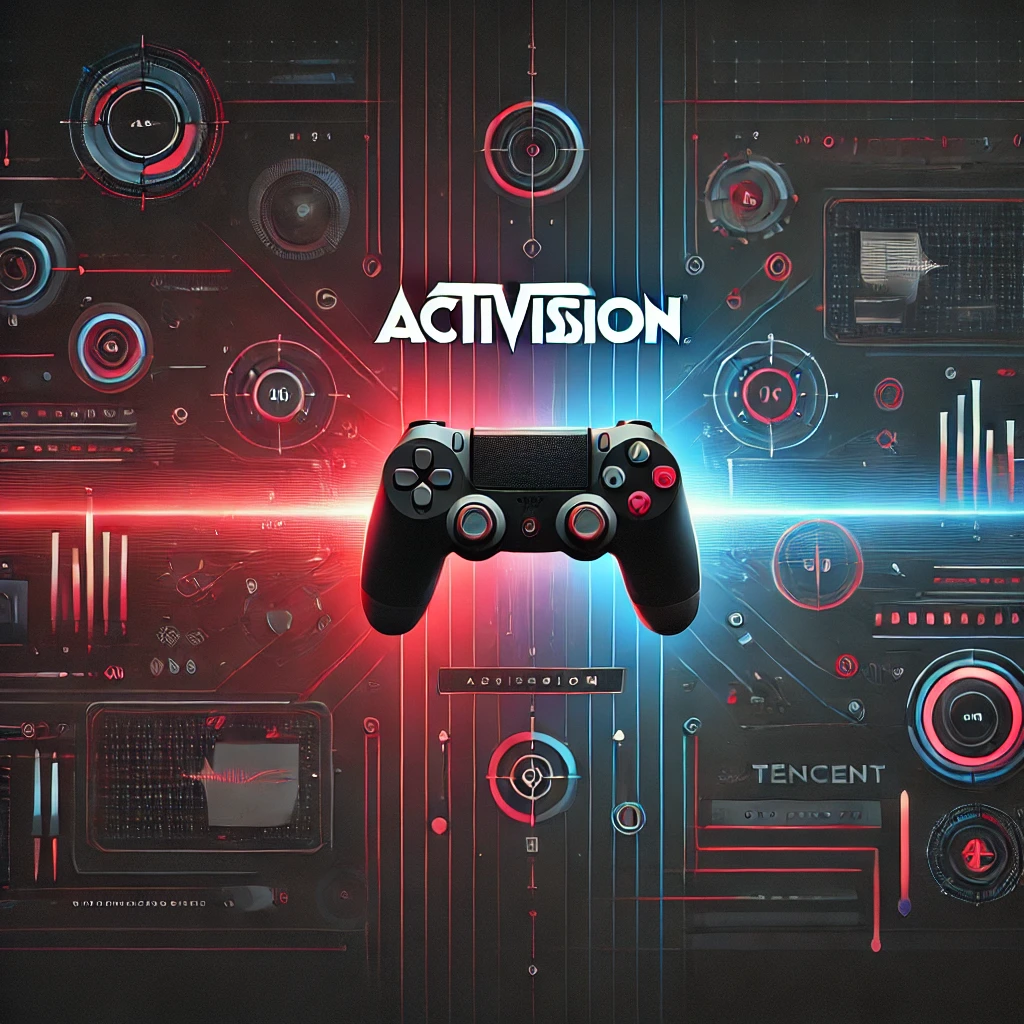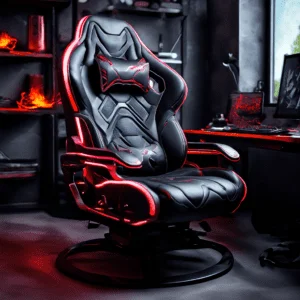The Global Reach of Call of Duty: Mobile: 3 Key Roles of Activision, Garena, and Tencent in the Game’s Success
Discover how Activision drives the global success of Call of Duty: Mobile, alongside Garena and Tencent. Learn about their roles, regional impact, and how they shape the game’s future. 🚀🎮
1. Introduction
Call of Duty: Mobile transformed mobile gaming by bringing the iconic first-person shooter to smartphones. Launched in October 2019, it blends fast-paced action with mobile accessibility. Its global success is driven by strategic partnerships with Activision, Garena, and Tencent, which handle regional distribution, localization, and server management. These efforts ensure smooth gameplay and cultural relevance across different regions.
As the game’s popularity soared, it attracted millions of active players across different regions, thanks to its wide availability and the collaboration of local and global companies. This article explores the key players in the mobile game’s success, their roles, and how their strategic partnerships have contributed to Call of Duty: Mobile’s global success.
2. The Origins of Call of Duty Franchise
First developed by Infinity Ward and published by Activision, the Call of Duty series became a new, cinematic way to look at WWII combat when it launched in 2003. Over the years, Call of Duty would evolve to cover modern warfare, futuristic warfare, and even battles in space, becoming one of the most recognized and successful video game series in history. The series expanded its presence into various platforms, including consoles, PC, and mobile.
As the industry of mobile gaming began to rise, the thought of Call of Duty migrating onto smartphones sounded alluring to Activision. That was the challenge-keeping high standards to which the series had been held for years while adjusting gameplay mechanics to the limitations and capabilities of mobile devices. This was done by creating Call of Duty: Mobile, with the famous multiplayer modes, zombies, and battle royale mode that made it famous, but now for mobile.
With the successful performance of battle royales with mobile-first principles, such as PUBG Mobile and Fortnite, there was really little doubt left in anyone’s mind that to be competitive in any sense-or, indeed relevant-the Call of Duty franchise was going to need a mobile option. It really wasn’t simply about not getting left behind-it was also just good strategy, to take that experience to such a far bigger, global-wide audience and, if they choose, allow it.
3. Rise of Mobile Gaming
Mobile gaming has grown amazingly over the last few years. According to Newzoo, mobile gaming has now become the biggest segment in the global games market, accounting for more than 50% of gaming revenues. The rapid growth of smartphones and improved access to the internet have made mobile gaming accessible to a huge audience, outnumbering console and PC gaming combined when it comes to player numbers. Games like Candy Crush, PUBG Mobile, and Fortnite have shown that games can reach millions, if not billions, of players worldwide.
This did not go unnoticed by major game publishers, and Call of Duty was one of the last AAA franchises to make a substantial mobile debut. Call of Duty: Mobile came out at the right time when mobile gaming was at an all-time high and was in need of good quality, action-based mobile gaming titles that could provide a feel of console-like games on-the-go. The addition of popular modes, weapons, and maps from the console series pretty much sealed the deal for players looking for a portable Call of Duty experience.
Everything from touch controls to customizable settings in the game was developed to make the gameplay seamless both for casual and competitive players. Call of Duty: Mobile has helped further seal the place of mobile gaming in the mainstream, proving that players can enjoy a rich, immersive gaming experience on their smartphones.
4. Activision: The Owner of the Call of Duty Franchise
one of the most substantial and influential video game publishers in the world, known for its portfolio of successful franchises such as Call of Duty, Skylanders, and World of Warcraft. Founded in 1979, Activision revolutionized the gaming industry by introducing the concept of third-party game publishing. Over the years, it has become synonymous with AAA gaming, most especially in the first-person shooter genre, having Call of Duty as its flagship franchise.
Has a central role in the global identity of the Call of Duty brand. Again, Activision does not handle the mobile version directly in every region, but it retains ownership of the franchise on the whole. It provides oversight on the general direction the game takes, ensuring a product representative of the Call of Duty experience and with the high level of production values the brand is synonymous with.
The major challenge for Activision was fitting the formula of Call of Duty into a mobile format and still retaining those particular elements that have made the franchise so successful. To reach this, They teamed up with a range of mobile development companies so that the game would stand up to the expectations of both hardcore Call of Duty fans and casual mobile gamers alike. In this regard, the collaboration was very significant for designing, localizing, and distributing the game, but Activision was in firm control of the brand’s vision, marketing, and global strategy.

5. The Role of TiMi Studios: Development Partner
TiMi Studios is a subsidiary of Tencent and one of the world’s most successful mobile game developers. It’s focused on building games that are both highly engaging and commercially successful. To date, TiMi Studios has released several hits like the game Honor of Kings, later known as Arena of Valor outside China, and Pokemon Unite. It has built a reputation for staying ahead of mobile game development while pushing the limits to include an expansive player base, from casual players up to professional eSports players.
Actually, the development of Call of Duty: Mobile was originally done by TiMi Studios. This collaboration of Activision with TiMi Studios has translated the Call of Duty franchise smoothly onto the mobile platform. This would involve translating the console-quality graphics, fast-paced gameplay, and intuitive controls onto a touchscreen interface to make sure the game would appeal to both experienced Call of Duty players and newcomers to the mobile gaming scene.
The making of Call of Duty: Mobile was no minor task. TiMi Studios brought in the essential elements of the main series, such as iconic multiplayer modes (Team Deathmatch, Domination, Search & Destroy), a Battle Royale mode, and then integrated new mechanics, such as touch-based controls and mobile-specific features like daily missions and in-app purchases.
6. Garena: Publishing in Southeast Asia
Garena, the leading digital entertainment company in Southeast Asia, belongs to Sea Group, which was established in 2009. It’s known for publishing some of the most popular online games in the region, such as Free Fire, one of the most popular battle royale games around the world. Garena is also operating several eCommerce platforms and digital services, making it one of the largest players in the Southeast Asian market.
After forging a partnership between Garena and Activision to publish Call of Duty: Mobile, the publisher got to stamp its authority and expand into explosive growth in the Southeast Asia area. This comes as Garena assumes publishing duty in the area, meaning a commitment to fit Call of Duty: Mobile out for the taste and preferences that Southeast Asian gamers would appreciate. This entailed merely translating the contents to reflect the regional languages, cultural references, and social norms that prevailed locally, and adaptation of the in-game monetization model to better suit local tastes and preferences.
Beyond mere localization, Garena handled the competitive scenes for Call of Duty: Mobile in Southeast Asia, organizing local tournaments, arranging prize money for events, or creating an esports ecosystem. Understanding communities and cultural nuance with regard to southeast Asia inside out, Garena knew exactly the kind of influence this insight can have on its shaping of this game’s success on these shores.
The biggest contribution of Garena has to do with designing in-game events and promotions, which really clicked among players in Southeast Asia. This usually includes region-specific themes, special skins, weapons, or challenges combined with local holidays and festivals. In so doing, Garena not only managed to assure a personalized experience but also developed a very strong, active player base in Southeast Asia.
7. Tencent: The Giant Behind the Scenes
Tencent is one of the most influential companies in the global gaming market and extends right from China; it’s a multi-industry conglomerate. The subsidiaries under it, like TiMi Studios, have been responsible for developing and publishing some very successful mobile games in the world. Tencent’s involvement with Call of Duty: Mobile is indeed multimodal, right from being a development partner through TiMi Studios to an investor in several gaming initiatives around the world.
But the role of Tencent in Call of Duty: Mobile extends even into the operation of the game itself in China, which is co-developed by Tencent and Activision exclusively for Chinese players, hosted on its gaming platform. This edition follows all guidelines as per Chinese law, regulating game content to age limits of players.
This is where Tencent’s expertise in the Chinese market was extremely important: enabling Call of Duty: Mobile to function properly in the country. Knowledge of local tastes, a huge user base, and robust infrastructure helped Call of Duty: Mobile feel right at home in one of the largest gaming markets in the world.
8. Regional Servers and Their Impact on the Game
The reason why there are multiple servers for Call of Duty: Mobile is really key to the game’s global success. The reason being, different regions of the world have different gaming cultures, language preferences, and even technical requirements. In creating separate servers for different regions, Activision, Garena, Tencent, and other partners can tailor gameplay to local players.
The servers help in managing lag and latency issues to ensure smooth and responsive gameplay. They allow the running of the game in local languages, with localized content such as maps, skins, and events customized to appeal to regional tastes. For instance, the Southeast Asia Garena server might run region-specific content such as unique skins on weapons or collaborations with local influencers that make the game feel more personal and relevant to its audience.
This also allows developers to create in-game events and promotions according to any holiday or event prevalent in the area. For example, special content may be available during Chinese New Year in the Chinese server, during Diwali in India, or during similar times.
Matchmaking also distributes the nature of servers. By setting region-specific servers, players will be matched with only their region to constitute a much more even match. It further reduces a variety of connection issues that might come up while playing cross-regionally. The existence of these different servers does bring in challenges regarding keeping compatibility cross-region, especially when it comes to player progress and events cross-server.
9. The Collaboration Between Activision, Garena, and Tencent
From the very beginning, one of the major reasons for Call of Duty: Mobile’s success has been the collaboration that developed between Activision, Garena, and Tencent. Activision owns the franchise and controls the overall vision for the game, while Garena and Tencent’s regional publishing and development roles allowed the title to reach millions of players around the globe.
Activision partnered smartly with Garena and Tencent. In Southeast Asia, deep knowledge of Garena in respect to the regional gaming culture, with an extensive network of players, meant it was very well placed for the local promotion and development of Call of Duty: Mobile. Its capability to execute large marketing campaigns and run community engagement perfectly ensured wide adaptation in a rather competitive market.
Being the parent company of TiMi Studios, Tencent played an essential role in its development. Expertise from TiMi Studios in mobile game design helped Call of Duty: Mobile reach expectations from both casual and hardcore players. Besides that, Tencent knew how to position the game within the Asian market, especially for players from China-the biggest gaming market in the world.
Together, the companies formed a powerful partnership that was able to create and manage a mobile game that could cater to the unique needs of players across different regions. Their combined expertise in development, publishing, and player engagement made Call of Duty: Mobile a global hit.
10. Challenges Faced by Regional Publishers
While regional publishers have been very important in the overall success of Call of Duty: Mobile, some challenges are also thrown their way. One main problem is regional regulations. These vary from region to region and often clash with game content. For example, China has very strong controls on content in terms of violence levels, and the game needed to be adapted specifically for the country by Tencent, its publisher in that market.
Another challenge would be that of competition. For Garena, there is the competition in the mobile gaming space in Southeast Asia. The region features a number of popular mobile games like PUBG Mobile and Free Fire, which means that much effort needs to be done in retaining players as a way of ensuring that Call of Duty: Mobile comes out bright.
Player behavior and preferences also differ across regions. For example, mobile gamers in the West may prefer longer strategic sessions, whereas in Asia, they might favor quicker casual play sessions. The regional publisher needs to carefully balance these preferences while keeping the game fresh and engaging.
11. Future of Call of Duty: Mobile and Regional Partnerships
The future for Call of Duty: Mobile is bright, with continuous updates, new content, and increased eSports opportunities. With the mobile gaming market growing steadily, Activision, Garena, and Tencent will most likely continue to strengthen their collaboration in bringing Call of Duty: Mobile to more players, offering exciting new features.
Regional publishers will continue to play a major role in keeping the game relevant to a wide variety of markets. These companies will be refining localization and adding region-specific events and content to keep players interested and loyal to the game. Additionally, the competitive scene of the game is expected to grow, with more tournaments and professional leagues being organized by Garena and other regional partners.
Advantages and Disadvantages of CoD Mobile’s Global Model
Advantages
✅ Global reach with localized optimization.
✅ Good gaming experience on mobile.
✅ Regular updates and esports tournaments.
✅ Strong anti-cheat and fair play policies.
Disadvantages
❌ Updates are not simultaneous across regions.
❌ Monetization can be overly aggressive at times.
❌ Server lag in certain regions.
FAQs
1. Who develops Call of Duty: Mobile?
CoD Mobile is developed by Tencent’s TiMi Studios, which offers excellent mobile gaming performance.
2. Why does Garena have another version of CoD Mobile?
Garena operates in Southeast Asia and localizes content for the region.
3. Is Call of Duty: Mobile global?
Yes, though there are exclusive content or slightly different versions in some regions.
4. Does Activision control CoD Mobile entirely?
Activision is the guardian of the game but receives its development from Tencent and distribution in certain regions from Garena.
5. Will CoD Mobile continue to grow in popularity?
Yes! Regular updates, esports expansion, and community backing keep CoD Mobile a top mobile FPS.
12. Conclusion
Activision, Garena, and Tencent have played major roles in Call of Duty: Mobile. From development to publishing, every company’s different expertise utilized in the product greatly aided in making the title reach millions of players worldwide. The capability of the game to meet various cultural preferences and regional requirements, through localized content, events, and promotions, shows just how important partnerships are in today’s global gaming landscape.
With the further growth of mobile gaming, this will likely continue to be a very successful partnership that shapes the future not only of Call of Duty: Mobile but also of mobile gaming in general. The success of the game underlines how important strategic collaboration, local knowledge, and cross-border partnerships are in the ever-changing games industry.
Read another article here







